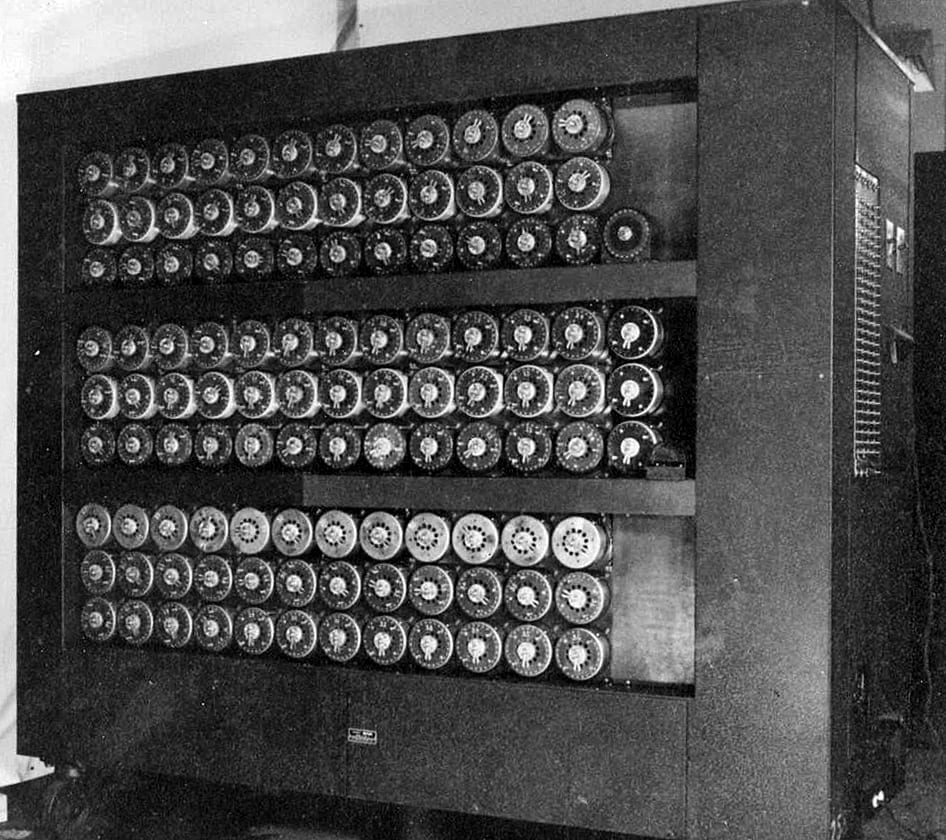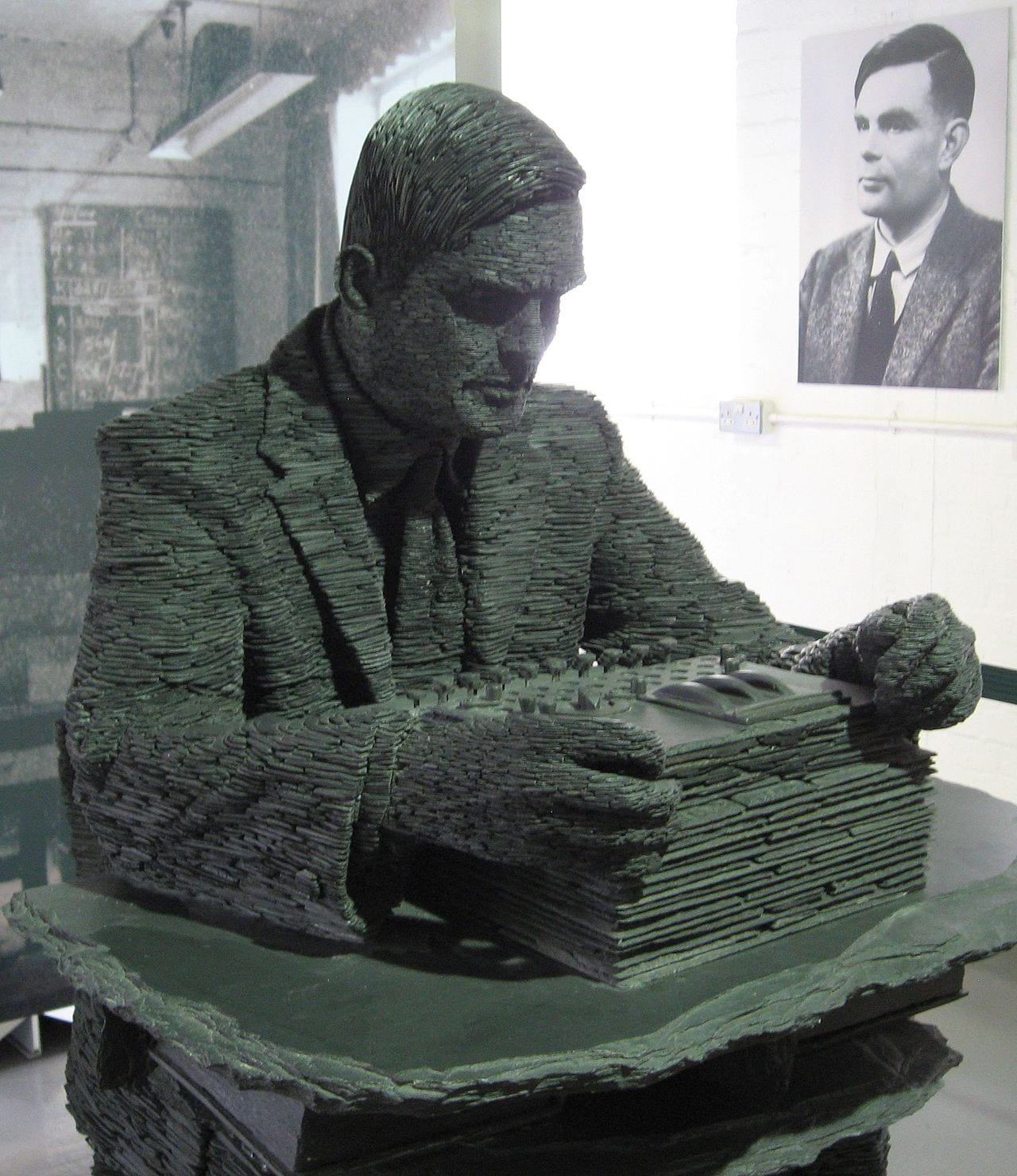2nd year Film and TV Studies. I have an unhealthy obsession with sitcoms and love to annoyingly recite the dialogue along with the characters in the show every time I rewatch them.

Alan Turing: the gay father of the modern computer
February 28, 2021,
read.
This article is more than 3 years old
Alan Turing, an English Mathematician, contributed massively during WW2. He played a crucial role in cracking intercepted coded messages and helped the Allies defeat the Nazis.
His work during the war
His most notable achievement was decoding encrypted messages Nazis were sending using the “Enigma” machine. In order to intercept and decipher the codes, he built another machine, “bombe” or simply Victory.

According to Professor Jack Copeland, this work helped to shorten the war in Europe by more than 2 years and saved over 14 million lives!
Life after the war
After the war, Turing was awarded an OBE for his services to the country and then worked in the Computing Laboratory at the University of Manchester as the deputy director.
During his time in the university, he dabbled in quantum mechanics, a new field at the time, as well as biology, chemistry and neurology. A lot of his work was related to creating machines that could learn and “think” on their own, similar to Artificial Intelligence (AI). This basically dubbed him the Father of Computers.
His “criminal” act
When he was a university student himself, at King’s College in Cambridge, Turing never really kept his sexuality a secret amongst his social circles. He was accepted by his peers. However, in 1952, he was arrested and charged with “indecency” after a brief relationship with another man. This was a result of anti-homosexuality laws in the UK in the 1950s.
Turing was defiant and did not deny his charges. He wanted to be able to do his work and so to avoid prison he accepted chemical castration (this was a Victorian law that viewed homosexuals as criminals and forced them to endure chemical castration), which eventually left him impotent.
Turing refused to let the punishment of chemical castration stop him from working and he kept up his lively spirit. He fought back and insisted on working as if nothing has happened. He even openly talked about his treatment amongst his friends and mocked the absurd law.
However, his conviction stripped him of his security clearance and so he couldn’t do any more secret work.
Turing’s tragic death
Two years later, he was found dead in his lab allegedly by eating an apple laced with cyanide. This fact has been disputed by those close to him stating that Turing would not have been a person to commit suicide as he viewed his work to be of great importance. However, many have also argued that he simply couldn’t live through his life anymore, after what he had endured at the hands of the law, which drove him to suicide.
In 1967, Britain took its first steps towards decriminalising homosexuality. And only in 2009, did the government officially apologise for how Alan Turing was treated. Gordin Brown, the prime minister then, said “We’re sorry – you deserved so much better. Alan and the many thousands of other gay men who were convicted, as he was, under homophobic laws were treated terribly” In 2013, Queen Elizabeth II granted Turing a royal pardon posthumously.
Turing’s legacy
In 1936 he developed the idea for the Universal Turing Machine, the basis of the first computer. In 1950, he also developed a test for AI which is still used today. He laid down principles that have moulded the relationship between humans and machines created to solve problems. His impact on computer science is now commemorated in the annual ‘Turing Award’ which is the highest accolade in the industry!

This enduring fascination with his life motivated Andrew Hodges to write a biography “Alan Turing: The Enigma” which inspired the 2014 film, “The Imitation Game” starring Benedict Cumberbatch and Keira Knightley.
If you’re further interested to find out more about Alan Turing and his life check out the film on netflix! You can also find the book that inspired the film here.
As a final thought, one can’t help but wonder how much more he could have achieved if it wasn’t for laws that criminalised someone for simply existing as themselves.
Sources:
https://www.bbc.co.uk/news/technology-25495315
https://www.bbc.co.uk/news/technology-18419691
https://www.bl.uk/people/alan-turing
https://www.pbs.org/newshour/science/8-things-didnt-know-alan-turing
- Topics
- Arts & Culture
- lgbthistorymonth
- LGBTQ+




